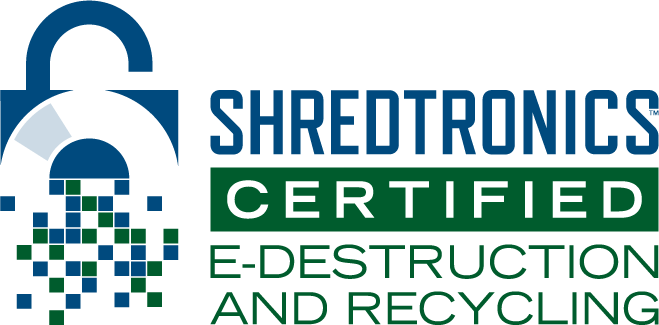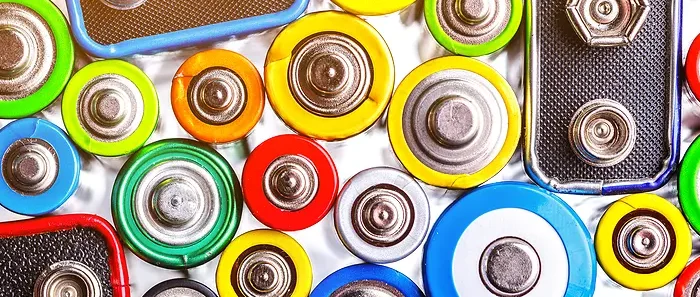
Batteries are the backbone of our modern world, powering everything from cell phones and laptops to cars and beyond. This technology, which dates back as far as the founding of the United States, fuels our ongoing technological advancements. However, batteries have a finite lifespan, and to protect our environment and conserve resources, it’s crucial that battery recycling becomes as widespread as the devices they power.
Batteries, much like the gadgets they energize, are composed of a variety of materials—lithium, cobalt, mercury, and more, spanning much of the periodic table. Unfortunately, many of these resources are limited, and some can be harmful to the environment if not properly disposed of.
The good news is that battery recycling offers an effective solution to these challenges. By recycling batteries, we not only safeguard our environment from toxic waste but also reduce the need to extract new materials, promoting sustainability and resource conservation.
The Types of Batteries that Need Recycling
From phone batteries that you need a surgeon’s touch to remove, to the simple AAs you chuck into a remote, batteries come in a wide range.
Common Household Batteries
Household batteries, including 9-Volt and D batteries, fall under the Alkaline and Zinc-Carbon category. While these batteries can often be safely disposed of in the trash in most parts of the U.S., it’s still highly recommended to recycle them. Depending on your municipality, recycling options may include battery drop-off locations or curbside pickup.
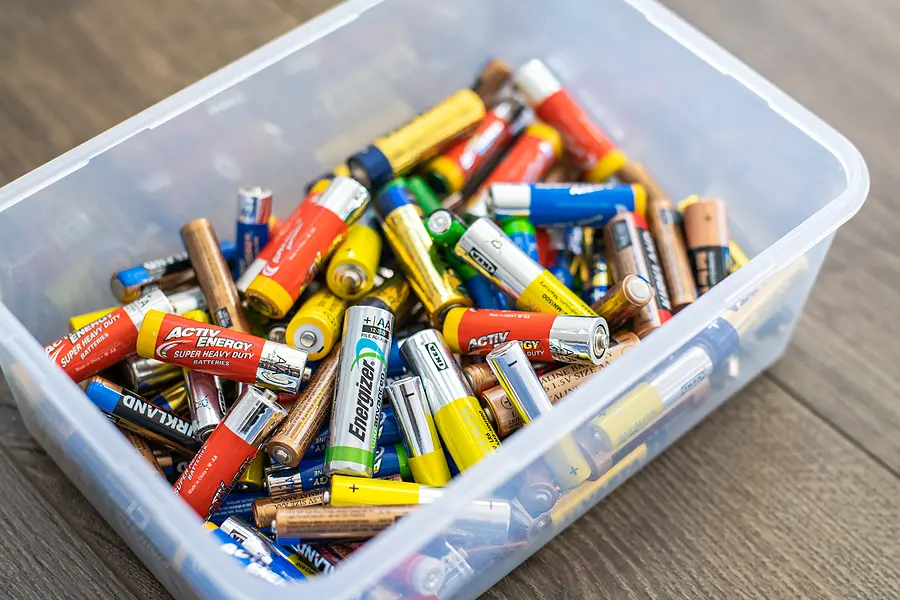
The second type, button-cell or coin batteries, are the small round batteries commonly found in watches, hearing aids, calculators, and more. Most modern versions are made of lithium, but older ones may contain silver, cadmium, mercury, or other heavy metals. These batteries should always be recycled, either through a battery takeback service or your local recycling program.
Lastly, lithium single-use batteries, which may resemble 9-Volt batteries but also come in specialized shapes for cameras, calculators, and other devices, require special handling. According to the EPA, these batteries should not be thrown in the trash or placed in municipal recycling bins. Instead, they must go through the appropriate battery recycling process at designated locations.
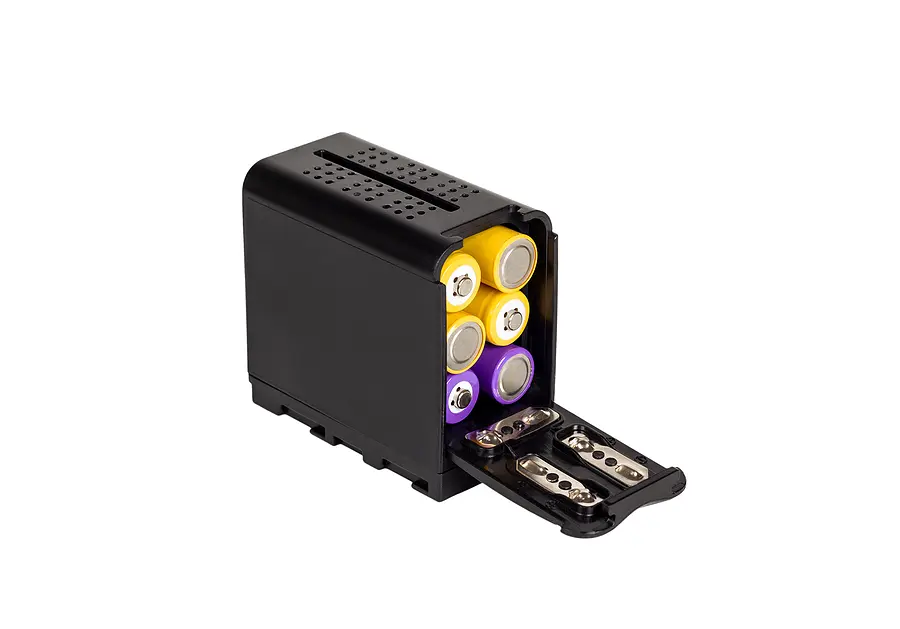
Rechargeable and Technology Batteries
The most common and prevalent rechargeable batteries are Nickel-Cadmium (Ni-Cd) batteries and Lithium-Ion (Li-ion). Ni-CD batteries typically power cameras, power tools, radios, and video cameras. Li-ion batteries make up the bulk of technology products, from cell phones to laptops to tablets. If the battery is detachable, you should take it to a battery take back service or your local hazardous waste collection program. For devices where the battery can’t be removed, most manufacturers operate a takeback services for their electronics.
Less common, but still in use, are Nickel Metal Hydride (Ni-MH), Nickel-Zinc (Ni-Zn), Small Sealed Lead Acid (Pb) batteries. These batteries, particularly Lead Acid ones, need to be recycled to protect the environment.
Automotive Batteries
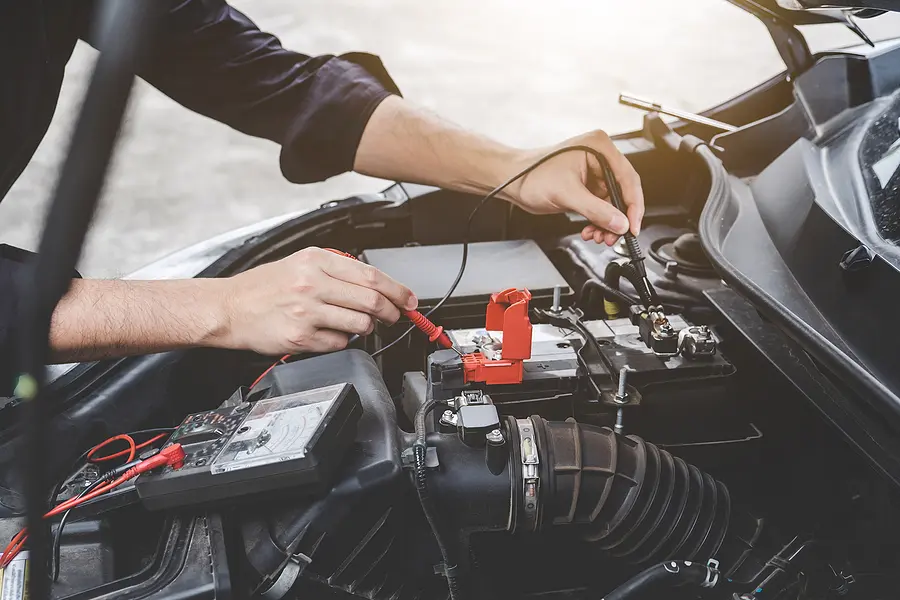
There are few things worse than trying to turn on your car and discovering that your battery is dead. These batteries, whether Lead-Acid or Medium/Large Scale Li-ion, tend to be the most complex of the bunch, and the most difficult to recycle.
For these types of batteries, it’s typically best to let a professional take care of it, as they can be highly toxic if handled improperly. Most repair shops will take your old battery for recycling once it dies, but if you must deal with it yourself, be sure to follow all the manufacturer’s guidelines for its handling and disposal.
The Benefits of Battery Recycling
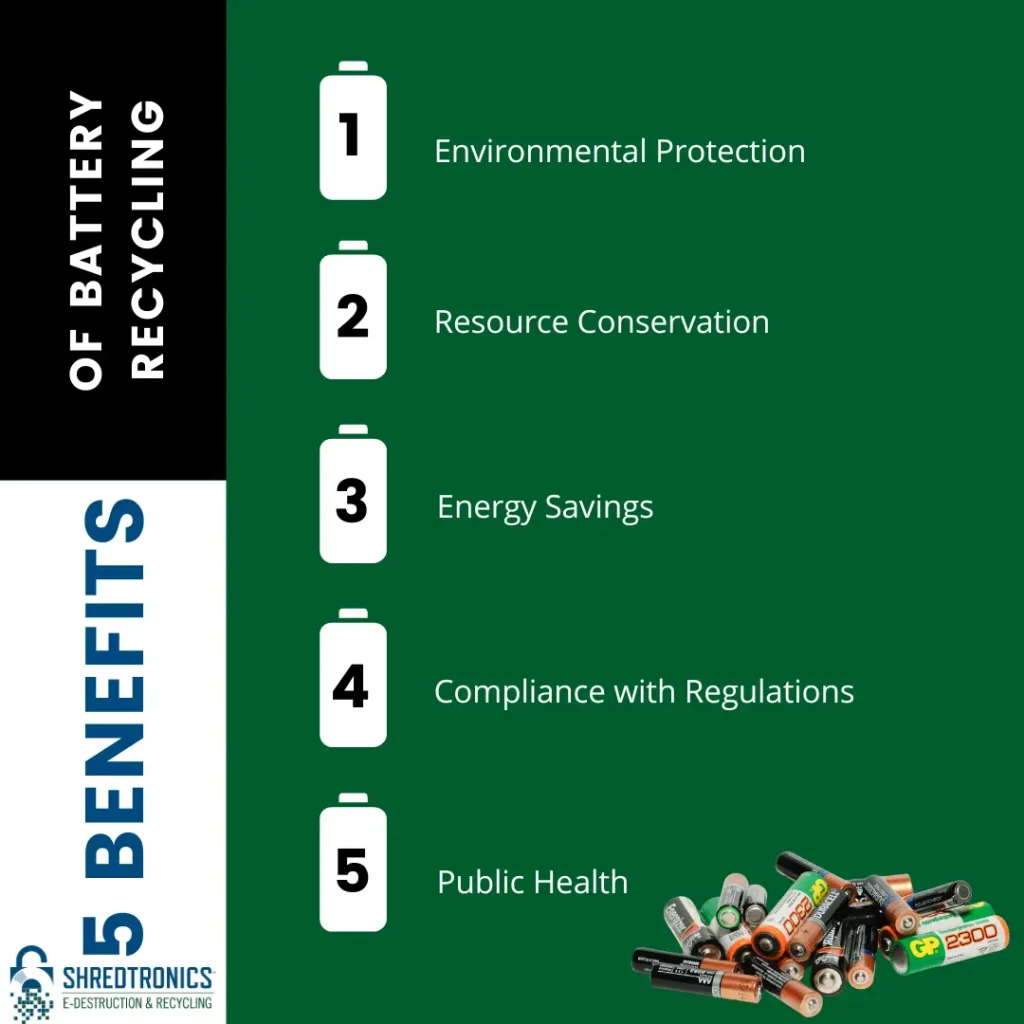
Environmental Protection: Batteries contain hazardous materials like heavy metals, which can leach into soil and water if disposed of improperly. Recycling prevents these toxic substances from contaminating the environment.
Resource Conservation: Many batteries contain valuable metals like lithium, cobalt, and nickel. Recycling allows these materials to be recovered and reused, reducing the need for mining and conserving natural resources.
Energy Savings: The battery recycling process requires less energy compared to producing new batteries from raw materials. This reduction in energy consumption helps decrease greenhouse gas emissions and lowers the overall environmental impact.
Compliance with Regulations: Proper battery disposal and recycling help businesses and individuals comply with local, state, and federal regulations, avoiding potential fines and contributing to a safer environment.
Public Health: By preventing hazardous materials from entering landfills and incinerators, battery recycling helps reduce the risk of exposure to toxic substances, protecting public health and ensuring safer communities.
Battery and Technology Recycling with ShredTronics
ShredTronics partners with recyclers across the country to help keep technology sustainable. Our partners ensure that whatever technology you need to get rid of is done so in a sustainable and secure fashion. Give us a call at (844) 648-4908, or fill out the form on the page, and we’ll connect you to a recycling provider that can take care of your old electronics.
